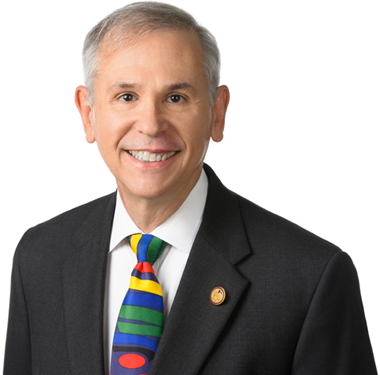(Note: As I have done in past elections, I am running a series of Q&As for judicial candidates in contested Democratic primaries. This is intended to help introduce the candidates and their experiences to those who plan to vote in March. I am running these responses in the order that I receive them from the candidates. Much more information about Democratic primary candidates, including links to the interviews and judicial Q&As, can be found on Erik Manning’s spreadsheet.
1. Who are you and in which court do you preside?
Charles A. Spain, Justice, Place 4, Court of Appeals for the Fourteenth District of Texas.
2. What kind of cases does this court hear?
The Fourteenth Court hears civil, criminal, family, juvenile, and probate cases appealed from trial courts in Austin, Brazoria, Chambers, Colorado. Fort Bend, Galveston, Grimes, Harris,
Waller, and Washington Counties. The court hears everything that can be appealed in Texas state court except post conviction writs of habeas corpus and criminal cases in which the death penalty has been imposed.
3. What have been your main accomplishments during your time on this bench?
I have emphasized treating all persons before the court with consistent and fundamental fairness, which means following the procedural rules and the law without waiting for the parties to ask us to do our job. I always notify parties of procedural mistakes and allow them to be corrected rather than deciding on a case-by-case basis whether the rules should be followed. By being consistent, I often find that things aren’t always what we assume they are. Sometimes that changes the outcome of the appeal.
When it comes to the merits, I follow the law. And when I believe the majority does not, I write separately. Sometimes that changes the majority’s decision, and sometimes that gets the attention of the Texas Supreme Court or the Texas Court of Criminal Appeals. That’s extra work for me in addition to staying current on the cases before the court.
It’s not enough to just timely dispose of cases before the court. We also must administer justice without respect to persons and do equal right to the poor and to the rich.
4. What do you hope to accomplish in your courtroom going forward?
Persuade my colleagues to discuss more cases in person.
5. Why is this race important?
Diversity is important in both who you are and in the perspective you bring to the court.
My perspective is that of an appellant practitioner who is board certified in civil appellate law by the Texas Board of Legal Specialization since 1994 and someone who has worked in the judiciary for 33 years, giving me a deep understanding of the legal system.
I am also openly gay and share that with people because it’s not something that you would otherwise know about me. The legitimacy of the judiciary is based in part on people seeing themselves in the people who are judges. I want LGBTQ+ people to know that we have a place at the table and we’re staying.
6. Why should people vote for you in March?
When I received my Eagle Scout award 50 years ago, I was charged “to be among those who dedicate their skills and abilities to the common good. Build your life on the solid foundations of
love for others, honest work, unselfish service, and dedication to truth, and, whatever others may say or do, you will leave behind you a record of which every Scout may be justly proud.”
I have always taken those words seriously and try to live up to them every day. I’m now a Scout leader, and I’ve charged numerous new Eagle Scouts to do the same. While it is not always easy to do the right thing, if we do so consistently we make the world better.
That’s my moral compass.


Justice Spain is an asset to the appellate bench. I hope to see him re-elected to a second term by the voters in the Democratic primary and the November election.
Agreed. He is definitely the best candidate in this race.